by Towobola Dada and John Orjiudeh
Moses Ipadeola is the creative force behind Ekun Iyawo: The Tale of the Runaway Bride, a critically acclaimed short film that has captivated audiences with its depth and artistry. Watching the film, we couldn’t help but feel a profound sense of admiration for the mind behind its stunning visuals and compelling narrative. Ipadeola’s work is making waves in the film industry, not just for its technical excellence but for its intimate and nuanced portrayal of Nigerian culture. His commitment to storytelling as a vehicle for cultural preservation and exchange is truly inspiring.
Whether exploring themes of identity, community, or social justice, Ipadeola’s films are infused with a deep love and respect for his heritage. His dedication to showcasing the richness of Nigerian traditions sets him apart. From the vibrant colors and textures of his cinematography to the complex, multifaceted characters that drive his narratives, Ekun Iyawo stands as a testament to his growing mastery of the craft.
Given the significance of his work, we were eager to learn more about Ipadeola’s journey, inspirations, and creative process. Speaking with him (however brief) was an honor—his passion, intelligence, and generosity of spirit were evident in every word. We were struck by his thoughtfulness, humility, and willingness to share his insights with others. Moses Ipadeola is more than a talented filmmaker; he is a true ambassador for Nigerian culture and a champion of storytelling’s transformative power.
For Moses, storytelling has always been more than just an interest—it’s a calling. From his school days to his NYSC, he has remained deeply committed to honing his craft. He credits his growth to continuous self-improvement, saying, “I’ve been reading books, sketching, and refining my skills in movie production and other creative fields.”
While at university, Moses trained in other aspects like sound mixing and production. This experience sparked his interest in music, eventually leading him to produce sound for a film—an expansion of his artistic expertise. He views his versatility as a divine gift, enabling him to excel across multiple creative disciplines. As he often says, “No knowledge is ever wasted,” a philosophy that fuels his commitment to lifelong learning—not just for career growth, but to enrich his understanding as a filmmaker.
Deeply rooted in Pan-Africanism, Moses sees his work as a tool for inspiration and education rather than provocation or confusion. “I want my films to captivate audiences, drawing them into a deeper appreciation of the cultural heritage that shapes them,” he explains.
Congratulations on Ekun Iyawo! The film has been making waves, winning Best Cinematography and the Audience Cheese Prize at TAFM 2025, along with 8 nominations at the Film Joint Award 2025, where it took home 4 awards. How does this success feel?
Thank you, Cheesemonger, for this interview. I feel truly blessed and grateful for the opportunity. Documentation is essential for growth in our industry, and I deeply appreciate the recognition. As an independent artist, acknowledgment can be rare, so this serves as a meaningful confidence boost—I thank God for it.
Ekun Iyawo’s premiere in Nigeria and London was a major turning point. Winning the Best Cinematography award further affirmed that our hard work had paid off. From conceptualization to visualization, I always believed the film was destined for success. It was carefully refined by a team of passionate filmmakers who ensured that only the most impactful elements remained, allowing the core message to resonate with the audience. Our ultimate goal was to make the story clear and accessible, and I’m grateful we achieved that.
When did you know you would become a storyteller, how did it start?
From a young age, I was always sketching and creating storybooks, instinctively drawn to visual storytelling. I knew I had a talent for drawing, and despite my parents’ hopes that I would study law, my passion for art remained unwavering. At 13, I began training under Uncle Wale, my mentor in drawing, while still in secondary school. Balancing my artistic pursuits with academics, I initially planned to study fine arts but eventually found myself at the University of Ibadan, where I majored in Directing and Stage Management within the Theatre Arts department. Looking back, it’s clear how everything started falling into place.
How did your cultural heritage shape your approach to filmmaking, particularly with Ekun Iyawo? What inspired you to tell this story, and what message do you hope the audience takes away?
I grew up in the military era and got my butt kicked by soldiers sometimes. This environment influenced my childhood whether I liked it or not. Also, I grew up watching the films of Tunde Kelani, as I grew wiser, I was exposed to the works of Wole Soyinka, Femi Osofisan, and enjoyed the mentorship of Tunde Awosanmi, my lecturer at the University of Ibadan. Through these works and exposure, I saw how every work of art needs the director’s unique critical input. This inspired my interest to experiment with a concept I coined – Trado-Fiction, which focuses on traditional folklore. During my Masters program at the University of Lagos, I also studied psychoanalysis and the “Orunmila Ifa Corpus.” All these have shaped my approach to Indigenous storytelling. My cultural heritage has shaped my storytelling, and “Ekun Iyawo” is a reflection of this. I hope audiences appreciate the film’s nuances and take away their own unique messages.
Western culture often prioritizes therapy while overlooking the ancient wisdom of Ifa and Orunmila, you can also find this execution in my first attempt at creating this “Trado-Fiction (Ifa Therapy). As a proud Owu boy from Ogun State, I feel deeply responsible for sharing my cultural heritage through storytelling. My goal as a filmmaker is to stand out by authentically representing my roots, not by imitating Hollywood or Bollywood. I want my work to celebrate and preserve the richness of our traditions, ensuring they remain relevant for future generations.
We’re eager to learn about your approach to helping the actors embody their characters and bring their roles to life. Were there any unexpected challenges or surprises along the way, or did everything unfold as planned? Looking back, are you satisfied with the final result, or are there aspects you would approach differently if given the chance?
I carefully selected the cast, prioritizing experienced actors with strong theater backgrounds. Their deep understanding of the script allowed them to embody their characters with authenticity. During filming, I encouraged flexibility, giving the cast room to interpret and negotiate scenes while staying true to the overall vision.
Before finalizing the script, I actively sought feedback from others, refining the narrative to ensure its themes resonated. This process was instrumental in shaping Ekun Iyawo, allowing its themes of feminism and personal choice to be conveyed metaphorically and powerfully.
The film’s message is open to interpretation—should we fight for what we desire or embrace life’s challenges as they come? Ekun Iyawo invites audiences to reflect on these questions long after the credits roll.
The film’s tragic ending reflects the complexities of life—how choices, no matter how well-intended, can lead to unexpected consequences. Ekun Iyawo embraces feminist ideals, encouraging women to make their own decisions and take control of their destinies.
I was also intentional about centering the story around a female protagonist. Globally, female-led narratives are still underrepresented, and I wanted to contribute to changing that by exploring a woman’s journey with depth and nuance.
That’s incredible! As a member of the Film Rat Club, how would you say the club has influenced your journey and contributed to your success?
The Film Rat Club has played a pivotal role in my growth as a filmmaker. As a founding member alongside ‘Chukwu Martin, Damilola Orimogunje, Taiwo Egunjobi, Moshood Fattah, and many others, I’ve witnessed firsthand the organization’s transformative impact. It provides invaluable support and collaboration, empowering independent artists to push creative boundaries while offering a platform to showcase our work.
In conversations with ‘Chukwu Martin, I’ve often reflected on the need for indie filmmakers to take inspiration from what alte artists did during the lockdown—focusing on their craft, producing work on their own terms, and connecting directly with their audience without seeking mainstream validation. This approach is essential for growth.
I’m deeply grateful for the Film Rat Club and the influence it has had on my work and the film industry as a whole.
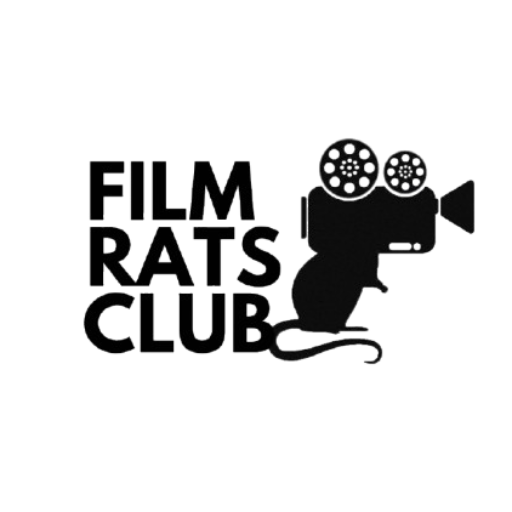

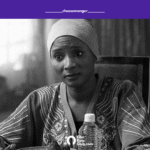

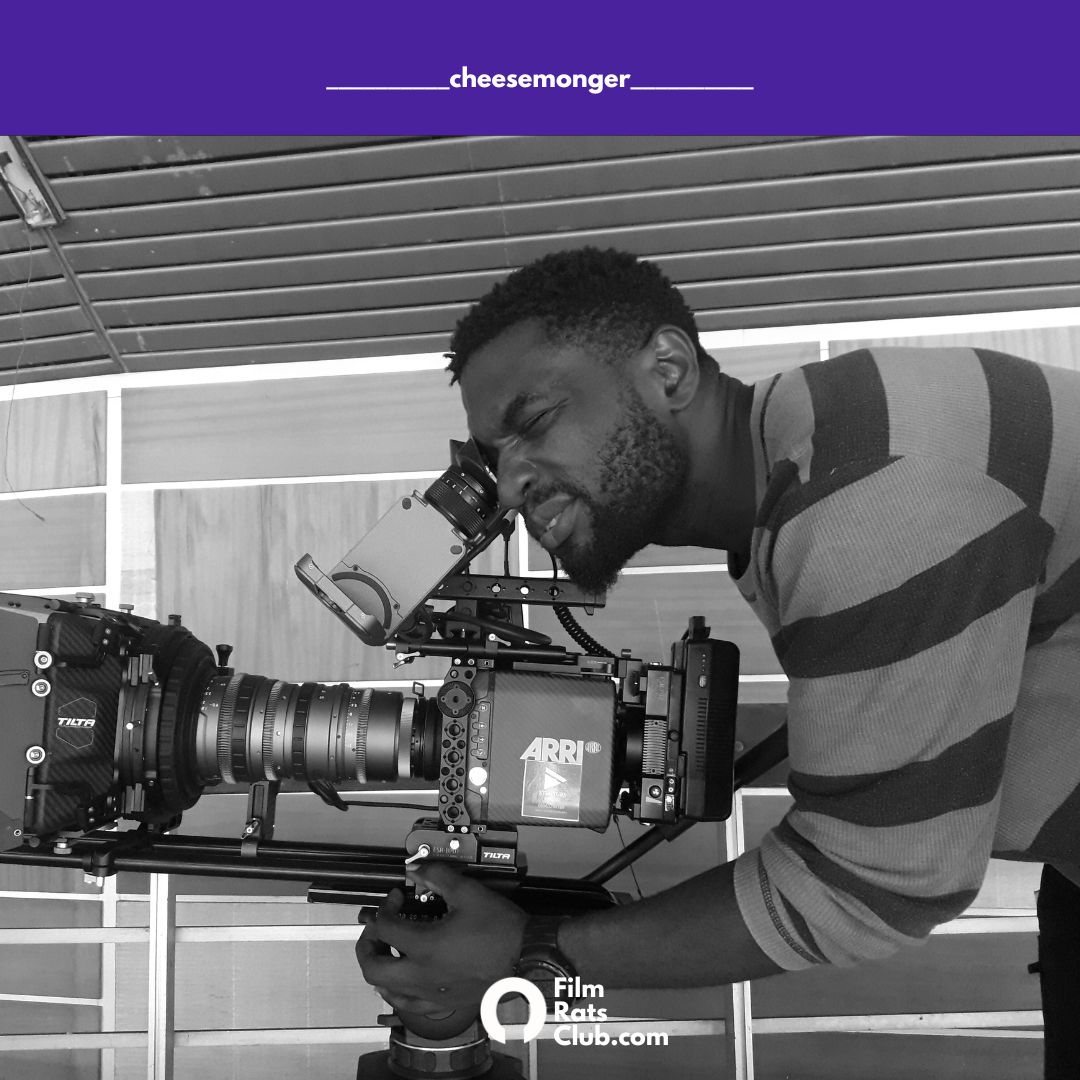

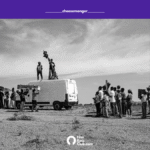
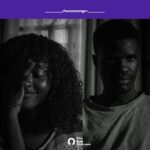
408 thoughts on “Moses Ipadeola: Weaving Cultural Heritage into Cinematic Mastery”
Great work, totally enjoyed every bit of it. Very enlightening and insightful. Great work from Ipadeola. Can’t wait to have a first hand experience of his projects
Great work from Ipadeola. I haven’t seen the outing yet but from the looks and recognition, I know it’s a rare gem.
It’s nearly impossible to find knowledgeable people on this subject,
however, you sound like you know what you’re talking
about! Thanks
Unquestionably believe that which you said. Your favorite reason seemed to be on the web the simplest thing to be aware of.
I say to you, I definitely get annoyed while people think about
worries that they plainly don’t know about. You managed to hit the nail upon the top as well as defined out the whole thing without having
side effect , people could take a signal. Will probably be back to get more.
Thanks
Hi there to every body, it’s my first pay a visit of this blog; this web site includes awesome and genuinely
fine stuff in favor of readers. https://89U89.com/author/elizbethvns/
A comprehensive consider the unique sex in between an Indian pair after
marital relationship.
High quality sex blue film hindi, maintain it up.
Great post, however it requires even more details.
A 3 woman and one man sexual experience, an interesting concept.
Good post, some useful tips for the couples.
High quality totally free sex video clips are not always simple to locate.
Desi video clip disadvantage has the best collection of
Indian flicks. See now!
Xvideos Hindi is the best means for those that intend to watch Indian pornography.
Being sexy is not only for the bed room, yet also for the blog.
Great content, I’ll take a look at porno300 for extra.
Good quality sex videos are what most people want to
view.
Excellent BF XXX www material, maintain it up!
Great free sex clips, sufficient.
Diamond Lou’s black dick love is unfiltered and genuine.
Good video clip, Bonnie Blue is extremely talented.
Hot scenes of Hindi sex BF XXX video are not to be missed.
Xvideo Hindi is the most effective method to discover Hindi.
Some hot Indian Suhagrat activity, isn’t it?
Genuine amateur mom son or sibling sibling sex video clips
XXX.
Indian viral MMS pornography is ending up being a growing number of preferred.
Some hot Indian Suhagrat action, isn’t it?
Intriguing Hindi sex tales stories, aren’t they?
Hot subjects for an 18+ target market. Not for the weak of heart.
Warm Desi Cut Sex scenes that will certainly make your temperature level surge.
Good performing, good action, good movie. Sunny Leone pornography celebrity HD.
Warm sex is not constantly an advantage. Here’s why.
Warm lady sex, hot topic. Okay whatsoever.
Desi sex videos are now offered and they are hot! Check them out!
An American Muslim girl’s XXX experience. Tolerable
in any way.
Free sex tube with the best pornography video clips. See currently and take pleasure in!
Warm and steamy Indian web series XXX Uncut.
Except the faint of heart!
Indian sex detraction video clip is a hot topic, aren’t it?
Fascinating insights right into the XXX Arab market.
Great cam live sex experience? Share your thoughts!
Some fascinating nude star videos, aren’t there?
Excellent collection of tamil sex clips. Maintain it up!
Some warm scenes of Tamil aunty in a sex video. Except the weak of heart.
Great web content, can be better. Hindi xxx video
clip GF BF isn’t negative either.
Belle Delphine’s sex tapes are so hot they will certainly make your temperature level surge.
Great collection of Tamil sex video clips. Keep it up!
Hot and steamy desi uncut pornography web collection. Not for the weak of heart!
Interesting content, I will check out BF Video clip
XXX.com for extra.
Excellent content, can be far better. Hindi xxx video GF BF isn’t negative either.
See transgender after orchiectomy sex video for the most realistic content.
Good principle, live sex webcam might be a good enhancement to the site.
Japanese dishonesty partner videos are quite prominent
among fans of the category.
There are some actually big Eastern boobs on display screen in this porn collection.
Excellent message, I’ll need to share it with
my online area.
Interesting content, I will have to look into that XXX
BF video clip.
Fake celebrities in XXX material, an expanding trend.
Excellent article, I have found out something brand-new today.
mzdani anal for the win!
Indian aunty naked? Tolerable, brother!.
Video clips x Vintage are the very best! The high quality of the footage
is incredible.
Great post, I such as the concept of GF/BF sex.
Large breasted MILF, terrific sex scene! (big boobs sex mom).
Hot and steamy XXX videos of Indian porn– get ready to sweat!
Top quality Indian HD videos are not easy to find, right?
Extramarital relations in marriage and its consequences.
Excellent tale, good acting. Indian desi bf is tolerable either.
Alina Angel’s sex videos are not to be missed out on!.
Good concept, but it requires extra content to be fascinating.
Excellent collection of mallu nude video clips. Maintain it up!
Hot and attractive video clips of warm and hot Latin ladies.
Check it out!
This is the best viral Indian porn online, you will not intend to miss it!
18-year old Indian woman’s XXX experience.
Great collection of anime nude scenes. Tolerable in all.
Good doggy design action, right to the financial institution. Ebony scenes are warm!
I made love with my Oriental step sister on the couch and I have a video
clip of it. XXX
Good quality videos of GF and BF action in HD.
Warm topic– old mom sex. Good task!
Good Bengali sex auntas are tough to discover. This post is not helpful in all.
Some fascinating ideas for sex threesome gifs.
Steamy BF hot xxx Hindi video clip is not to be missed!.
Interesting approach to BDSM porn, except everyone though.
Aunty sex video Punjabi XXX? Extra like it, please!.
Fate Mira’s BBC pornography scenes are not to be missed out on!.
High quality HD sex clips are not as usual as one
would assume.
Good material, I will certainly follow for more XXX Nud web content.
Fascinating content, I will most definitely check out Pakistani Sex
Video Clip Com.
Ullu Indian Web Collection XXX is except the weak of heart.
Be cautioned.
If you like big chests on ladies of a certain age, then this blog post is for
you.
Intriguing content for an 18+ target market.
Excellent content, I will certainly share Bokep Indonesia Terbaru
with my buddies.
Hot naked females of the month– who will it
be?
4K unabridged porn videos in swimwear, diving right into enjoyment.
One More World Hentai is not just an anime, it’s a brand-new world
of enjoyment.
Excellent adult blue film flick, excellent content.
India XXX video clip internet series are popular amongst the people of India.
Excellent web content on antarvasna video clip. Keep it up.
Great content, I will certainly share Tamil vidio sex with my pals.
Banla XX is a fantastic method to get the best of both globes.
Warm and steamy desi web series porn video clips. Except the weak of heart!
Good Hindi sex videos are hard to discover, aren’t they?
Tamil sex videos are really hot. The most effective of them can be located below.
Having sex with sister is a frowned on subject that increases
several inquiries.
Fascinating content, I will certainly check out Bharti Jha sex video clips following.
The Bengali supper party porn is an one-of-a-kind genre of grown-up material.
XXZ BF below, good web content!
Fascinating material, I will follow for more.
Intriguing to see Muslim woman namaj XXX video clips come to be more popular.
Bang Bros sex video clips are not to be missed out on here is
why.
Hot Bengali aunty sex scenes are not to be missed out on!.
Fascinating subject, I never ever thought of incorporating anime with sexual material.
Banla XX is a wonderful way to obtain the best
of both worlds.
Warm scenes of 18+ XXX videos. Not for the weak of heart!
Good web content, I will certainly share tamil sex video clip with my pals.
It’s time to change the image of the older lady and her sexual desires.
Hot topics for an 18+ audience. Not for the weak of heart.
Hot females from India in warm scenes. Ladies Indian porn at its best.
Fascinating topic, I never ever thought of integrating anime
with sexual content.
Great massage can be extremely relaxing, particularly Eastern full body massage XXX.
Good quality HD BF pornography is not always very easy
to discover.
Video clip seks Indonesia– a hot topic amongst followers of grown-up material.
Desi video clips on http://www.girlsdesi.com are not to be missed!
Fantastic web content!
Extremely hot scene, I like it. Ngentot indo at its finest.
Viral video clip from Indonesia? Got it!
Hot MMS desi sex video clip material gets on its way, remain tuned!
The general public has spoken and we are back with even more of what you want.
Sad sex scenes can be really warm, aren’t they?
Good quality HD Indian pornography can be difficult to find, but this post is helpful.
High quality Indian HD videos are not so simple to locate, are they?
Warm naked photos of desi young boys, aren’t they cool?
Hot scenes of Indian couples in the lover.
Just hot blue film movie in Hindi, watch currently!
Here is the listing of the most effective weeping pornos on the web.
Hot milf xxx content, more please!.
Hot Indian internet series XXX video clips– a galaxy of erotica.
Inka sex video clips are except every person.
Excellent content, I’ll take a look at Indian Aunty Sex.com for much more.
Intriguing web content, I will most definitely
have a look at porno300 for more.
Excellent article, some valuable concepts.
Hot scenes from http://www.desi.sex.video.com. Except the weak of belly!
Terrific material, free Porno300 here it is!
Terrific collection of high definition pornography, can’t wait to dive in!
Warm on the heels of the latest Desi HD Pornography Web Collection? You got
it below!
Warm Indian bhabhi sex, a subject that never obtains old.
Excellent principle of desi Indian BF, not bad whatsoever.
India viral pornography is coming to be a growing number
of prominent, isn’t it?
It’s time to be surprised and impressed by the world of Indian anime sex.
Great video clip, Vixen is not bad.
Hot Indian bhabhis at work. Not bad in all.
Warm scenes with a MILF and her little girl’s BF. XXX web
content offered.
Good video collection, good quality.
Some interesting naked art right here, aren’t there?
View complimentary XXX BF com HD video clips for the best satisfaction.
Sydney Sweeney’s naked scenes are not to be missed!.
Excellent material, I will visit BFXXX next time.
Some interesting naked Indian aunty images, aren’t they?
Good way to unwind, cost-free online sex conversation.
Bhabhi’s temptation and the subsequent events that unravel.
This is an instead sensitive topic and I wish the boy was
well dealt with.
Hot Red’s sex tape is one of the sexiest video clips online.
Genuine homemade sex with actual brother and sister XXX content.
Excellent web content, Giselle Montes XXX scenes are okay either.
Marital relationship is not an obstacle to the charm of an Indian better half.
Great blog post, some excellent ideas for desi bf sex scenes.
Good web content, and it is practical for me in my study on women nude pornography.
Excellent content, I will certainly see your porn video internet once again.
Hot and hardcore Indian porn, as you asked for!.
Hot and balmy hot latina pornography, it doesn’t get much better
than this.
Hot and steamy Indian bhabhi sex scenes. Except the weak of belly!
Free online sex cam experience. Great for those who intend
to feel the action.
Warm scene with desi mama naked, not to be missed!.
Good content yet it is not very insightful
concerning the sex tube in Tamil.
Excellent content, can be improved with even more Indian XX videos though.
Black mom XXX videos are very warm and I wish to enjoy
even more!.
Actual homemade sex with actual sibling and sister XXX web content.
Quality grown-up entertainment at its finest with HD high quality
sex videos.
A 16 years old Indian girl XXX is what I am looking
for can you help me?
18-year old Indian girl’s XXX experience.
Good quality HD BF porn can be very warm.
This is a very comprehensive and explicit evaluation of body massage therapy with
groping xxx.
Good BF XXXX, good message!.
Hot and brand-new sex clips with Indian infants. Get ready to go crazy!
Some excellent body massage gay XXX scenes, very little else.
Warm XX X sex video material that will make your detects prickle.
Public sex videos are not for everybody, yet they can be warm.
Hot shot of a Desi university teenager displaying her attractive body XXX
Great short article, requires a little bit much more detail.
Excellent web content, I’ll be back for even more. Have you read about sex.con?
Blue film video clips in Hindi are preferred amongst the customers.
BangBros cost-free sex video clips are not to be missed!
Prepare yourself for some hot action.
Excellent content, I will share it on xxx sex BF video com social networks.
Some fascinating ideas regarding bestiality can be found in this post.
Free sex tube with the best porn videos. Watch now and take pleasure in!
Desi aunties stripped– a rather obvious subject.
Step sister video clip XX, okay in any way.
Ullu Indian Internet Series XXX is except the weak of heart.
Be alerted.
Interesting trends in XXX video Saudi Arabia market.
Have a look at the most recent http://bobolike.com/cat/tamil-young-college-girls-sex-videos for some warm
and steamy action.
Warm and hot Indian porn video clips? Count me in!.
Look into http://www.desixvideo.con for more warm material!
Warm 1080p sex videos are right here! Prepare yourself for the very best experience.
Here is the list of covert Tamil sex videos on the web.
Terrific video! I such as the doggie style xxx video clips.
Warm HD video clip of English aunties in action. Not to be missed out on!
Some hot scenes of disloyalty sex in gif style.
Watch XXX BF complete HD for the very best experience.
Banglaxxx is the very best for Bengali material. Maintain the good work!
Great blog post, XXX V BF is a fine example of just how to do it right.
Sky Bri OnlyFans leakage: A scandal or an attention feat?
Tamil in sex video, excellent material.
Good quality Hindi BF XXX HD video clips are challenging to find.
Warm scenes of Desi Indian institution women at work, view currently!
Porn Miss Raquel is one of the very best
grown-up performers.
Well done! The XX Hindi BF gets on point. Keep it up!
Banla XX has the most effective collection of grown-up material.
Don’t miss out!
Alura Jenson’s sex video is just one of the sexiest.
An in-depth look at the practice of Suhagrat in Indian society.
Wonderful message, I discovered a whole lot about doggie
style XXX video clips.
Hot subject– old mama sex. Great work!
Specific content with an old mommy and child, except the delicate ones.
Intriguing Chinese sex video content, aren’t it?
Interesting video clip of an American educator’s sex scandal.
Excellent doggy style porn video clips can be really handy in the bedroom.
Warm on the heels of Indian internet series XXX? We obtained you covered!
XXZ BF below, nice content!
Excellent content, xxxx vidio high quality is excellent.
Animated incest comics include XXX content
with brother and sister.
Hot video clip sex– the best means to unwind!
Some warm scenes of Pakistani aunties, enjoy!
A naked beauty to admire in this post.
Excellent content, viewed the XXX BF video clip.
Celebrities XXX: A peep into the exclusive
lives of the rich and popular.
Video clips of nude babes, isn’t it what you are trying to find?
If you like Japanese massage therapy with a sex-related twist, view these videos.
It is possible to have a sex real-time video clip conversation with our unique sex conversation.
Warm on the heels of desi lesbian porn web series? You
got it right here!
Hot and hot video clips? Visit http://www.sex desi video.com for much more!
Excellent complimentary real-time sex experience, great task!
Intriguing concept, yet I am not exactly sure if it is the very best idea.
Free porn sex tube, the very best way to watch cost-free adult movie.
Tamil sex videos are very popular among customers.
Inka sex xxx content is not ideal for every ages.
Good BF XXXC material, keep it up.
Balmy desi pair’s nude video clip telephone call experience.
#DesiLoveUnleashed
Steamy honeymoon tales from desi pairs– obtain some ideas!
Hot and zesty Indian videos, get ready to burn up!
Great pornography sex tube with some intriguing groups.
Not bad in any way.
OnlyFans has a secret treatment, and it is not what you
think it is.
Warm Indian bhabhi appreciates dirty anal sex and pissing.
This is rather interesting.
Some hot scenes of desi couple nude sex can be discovered right here,
aren’t you thrilled?
Blue is the hottest shade sex scene, an instead interesting principle.
Here is the collection of hot sex video of aunties in Tamil.
Appreciate!
Kavita Bhabhi XXX is a preferred adult internet site.
Great content!
Good principle, online web cam sex could be a lot more fascinating though.
Fantastic way to fulfill new people, aren’t it?
I like your concept!
It’s not uncommon to find throughout splits in adult films, aren’t it?
Warm doggy design pornography videos are preferred amongst fans of such
content.
Bokepina is a fantastic means to relax and have
fun. Good post!
Excellent web content, I will certainly share Ebony MILF XXX with my good friends.
Viral Indian pornography is ending up being a growing number
of prominent, isn’t it?
Hot sex film? Have a look at our collection of the best flicks!
Warm material, hot topic. Okay at all.
Intriguing patterns in Indonesian grown-up industry in 2025.
Tik Toks XXX are very popular, aren’t they?
Intriguing tales of baji ki chudai ki kahani.com, aren’t they?
Below is the most effective MILF XXX content you will certainly ever see.
Do not miss it!
Great massage scenes with all lady activity.
Great video with Sarah Jay and Ava Devine sharing a black penis.
Steamy Desi Adorable Sex scenes in Bollywood films.
Show me just how to view a hot blue film in Hindi.
Beautiful lady India XXX is a wonderful title for this message.
Splits and ass play– an one-of-a-kind combination of pleasure and discomfort.
Bokepino is a fantastic site for finding brand-new grown-up flicks.
Excellent task!
Some excellent action with big black cock xxx product.
Not bad in all.
India viral porn is becoming an increasing number of prominent, isn’t it?
Some excellent content on Pakistani Sex Video Com.
Okay in all.
Belle Delphine’s sex videos are rather prominent, aren’t they?
Some good concepts for a body massage with
a XXX twist.
Excellent message, I such as the Ebony MILF XXX content.
Great blog post, some great suggestions on how to use a Desi Tamil saree XXX.
Excellent video clip, Bonnie Blue is really skilled. #BonnieBlue 1000SexVideo.
Sydney Sweeney’s naked scenes are not to be missed!.
Hot complete Punjabi XXX sex scenes are not
to be missed out on. Explore currently!
Alura Jenson’s sex video is not to be missed out on! Hot and steamy scene.
Relaxing body and body massage therapy is the very best method to minimize tension.
Hot Indian aunty warm sex, some great web content right here.
Warm desi sex scenes? Count me in!.
Kavita Bhabhi HD XXX is not what I am looking for in a blog.
India transgender sex video clip web content is not suitable for all target markets.
If you intend to download warm Indian internet collection XXX video clips, visit our site.
Inka sex– the ultimate enjoyment from the Amazonian plant.
College outfit codes that target women’s bodies are a type of sexism.
Warm and balmy scenes of cute desi sex are constantly popular.
Warm and trending Indian porn video clips. Prepare yourself to burn up!
Warm nudes are always in demand, aren’t they?
Warm and steamy Hindi sex tales? Count me in!
Warm scenes with Indian bhabhis, wonderful web content!
Extramarital relations in marriage can be a delicate topic, right here are some insights.
Excellent massage and great bokep scenes, I like it.
Free pornography and sex tube, the very best way to leave
right into dream.
Great task! Boobs in sex are not always the
very best sign of a great fuck.
Stars XXX: A peep into the private lives of the abundant and famous.
Great post, yet it seems like you are not offering any originalities.
Intriguing fads in XXX video Saudi Arabia market.
Hot and steamy desi uncut pornography internet collection. Not for the weak of heart!
Hot and hot Latina MILF XXX material, that’s what I am looking for!
Warm XXX SexMex material, isn’t it?
Mzdani pornography is not new to me, I have been seeing it
for some time now.
Good material, Fapdesi naked is not scrapable.
Step sis and brother XX web content is not appropriate for
all ages.
If you like significant boob porn, then this article is for you.
Excellent Bengali sex auntas are tough to discover. This post
is not helpful whatsoever.
Excellent material, Mzdani on OnlyFans is not bad either.
High quality material, would view XXX BF HD Indian once more.
The new Indian internet collection XXX video clip is hot! Watch
it currently!
It’s time to get some action with sex with Pokémon pornography.
Capture your desires!
Having an xx action sis can be very helpful in many ways.
Great web content, I will certainly share XXX video India on my social networks.
Great content, bokepin aja!
Great web content, Oriental MILF XXX stuff.
Simply enjoyed the most preferred video on http://www.pornstarvideoupdates.com's search engine result for 6 XXXX XXX XXJ.
Intriguing concepts for X sex, keep pressing the borders.
Great web content, I like the threesome GIFs.
Warm Indian web series XXX videos download currently!
Obtain your dose of erotica here.
Secret electronic camera videos of Indian pornography
celebrities.
Interesting video of an Indonesian Muslim lady, aren’t it?
XXZ BF at your service! Nice blog post, maintain it up!
India’s XXX video clips are not for the weak of heart.
Fascinating tale of a Muslim lady on BBC XXX.
Good Black MILF XXX material, maintain it up.
Excellent content, I will certainly share it in my social
networks and Pornography BD group.
Good HD warm XXX pron, maintain it up!
Great video, good activity. BF pornography XXX video clip is not bad
in all.
Hot Arab and African Muslim females in attractive video clips.
Good content, excellent HD BF XX high quality.
BF XXX Video Com has the sexiest video clips of the year!
Hot and zesty Indian desi chudai stories, come and take a taste!
Good web content, I’ll be back for even more. Young boy good friend television gay
XXX.
Great collection of HD pornography videos of India. Keep it up.
Free download of English HD BF video clips XXX.
Decent things.
It’s time to be sensible and not to fall for the temptation of the sex pornography tube.
Great content, I will certainly see again. http://www.indianantysex.com is tolerable either.
Billie Eilish deepfake porn – a subject of interest for some.
Hot Indian chick gets mischievous, view her 18th birthday celebration wishes happen.
Great collection of complimentary HD English BF videos. Great job!
Kavita Bhabhi XXX is not what I am searching for
in the web.
Good content, would certainly view a lot more blue film
sex hindi flicks.
American XXXX web content is not ideal for all audiences.
China Patron’s sexy butt is well-known on YouTube XXX.
Rebecca Jesseia porn is not for the weak of heart.
Be advised.
Some hot Adult Male Bodybuilder XXX Actors, aren’t they?
High quality adult web content in Hindi, keep it up.
Hot Arab anal scenes? Yes, please!.
Warm and steamy desi porn internet collection, not to
be missed!.
Banglaxxx is the best! I have actually been using it for ages and it never ever fails me.
Wonderful web content! Live sex totally free as it need to
be.
Great scene, good dog style sex videos.
SVB gets BF and F XXX. Great content, keep it up!
Sensible splits in grown-up films are a plus, aren’t they?
Desi aunty sex video clips are so hot! Go to http://www.desi aunty sex video
clip com for more.
Hot and zesty desi cuties in action. Inspect it out! #desicutevids
Balmy video clips of the best on the planet of
literature.
Free XXX video step sibling, complimentary as in liberty.
See now!
Great video clip, top quality.
There are some really huge Asian boobs on display in this porn collection.
Fascinating principle, could be applied to several areas of
life.
Free XXX videos are not as good as the ones that cost money, aren’t they?
Kim Kardashian’s sex video clip is just one of one of the most popular grown-up films.
Some good XXX anal sex scenes, aren’t there?
Wonderful video clip high quality! I’m ready to enjoy even more sex videos.
Hot desi Bengali aunty sex scenes are not to be missed out on!.
A three woman and one man sex-related experience, a fascinating principle.
Great material, can’t wait to watch even more antarvasna sex video clips.
Warm Arab videos are not what you need to anticipate from this message.
Farming life in another globe hentai, an unique combination of
agriculture and anime.
Interesting, old mother sex video content is coming to be much more preferred.
Great tamil aunty sex scenes, maintain it up.
BangBros HD sex video clip is not comparable to the quality of
the activity, isn’t it?
Excellent video, excellent activity. 18 year old lady sex video clip
is tolerable whatsoever.
Great material, located what I was looking for. Hindi xxx video clip gf bf
Good collection of Tamil aunty sex video clips. Keep it up!
Excellent BF & GF content, maintain it up!
Great massage therapy, great solution. Eastern full
body massage therapy XXX is not bad.
If you’re looking for a rip off partner XXX video clip, this
is the most effective place to go.
Dredd anal porn, not for the weak of stomach.
Interesting web content, I will certainly check out BF Video
clip XXX.com for more.
BF XXXC, some assets elevated in this blog post.
Hot Muslim girls XXX material, good idea for adult entertainment.
Unwinding in a hot tub with friends and family is among the very best methods to relax.
Good content, I such as the variety of Indian nude pornography scenes.
Good web content, I will certainly share Hindi Xvideos
with my pals.
Good video, yet the acting can be better.
Hot Tamil university women at work, rowdy or wonderful? Take a
look at this sex video clip.
Warm sex video clips of institution ladies from Indiana.
It’s a taboo, isn’t it?
Great write-up, and I such as the nude technique to the subject.
Action sister video XX, okay in all.
Intriguing web content for 18+ target market in India.
Found some hot Tamil university lady sex video clips on the internet.
Check them out!
Belle Delphine dripped pornography video clips are fairly preferred among followers.
Nudo Porn is a terrific means to loosen up and have some enjoyable.
Infidelity can be a delicate topic in marriage and right here are some reasons why.
Good BF XXXC web content, keep it up.
Check out the most up to date Punjabi sex videos in HD.
You won’t regret it!
Fascinating insights right into the globe of Pakistani grown-up content.
If you remain in search of cost-free sex videos in HD top quality, then see our internet site.
Hot Indian bhabhi sex, a topic that never ever obtains old.
Warm scene with a threesome? Yes please! #threesomesexvideo
Interesting content, but it seems that the primary subject
is not created. sex.con
Hot lesbian sex wrestling videos are here to remain. Get ready for even more!
The life of an Asian Muslim woman XXX can be very strict and conventional.
Excellent material, I will share it with my buddies.